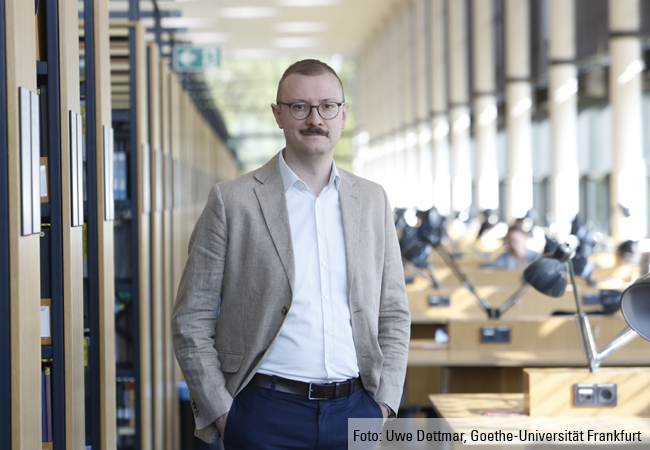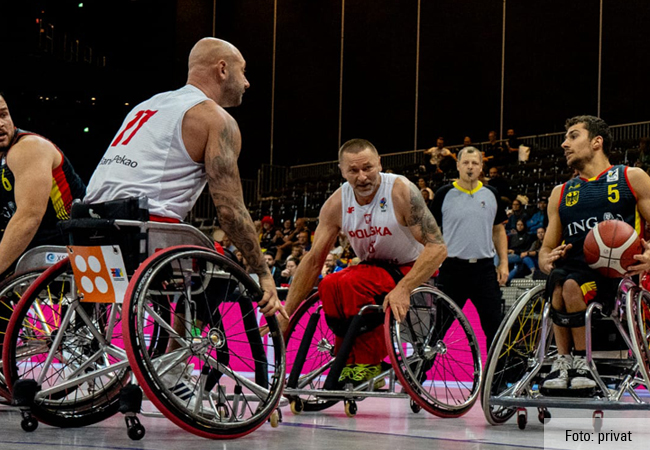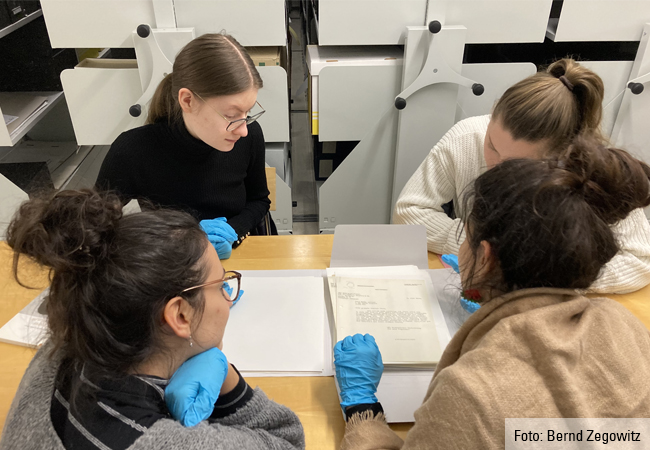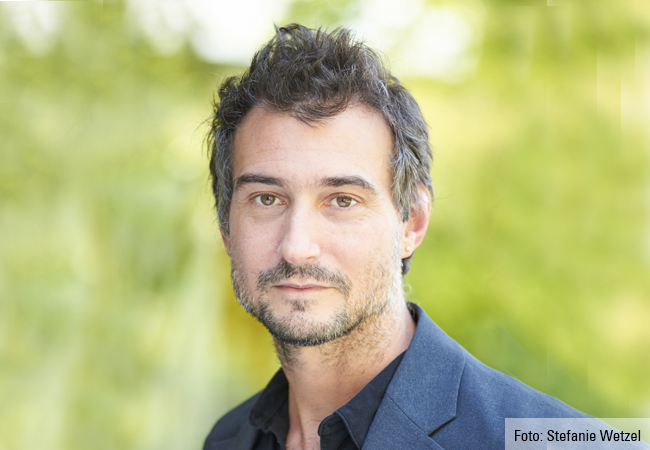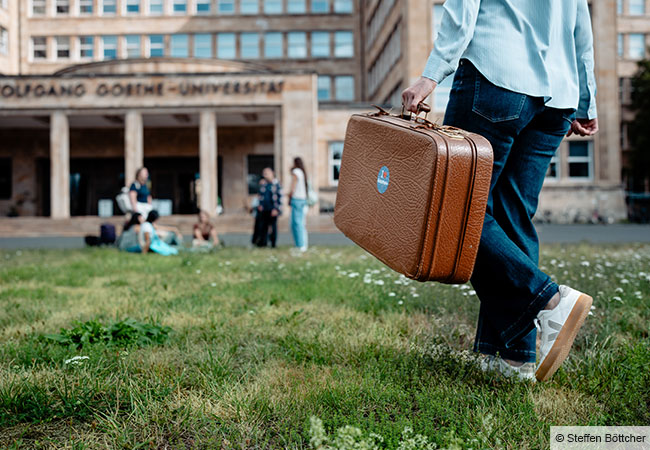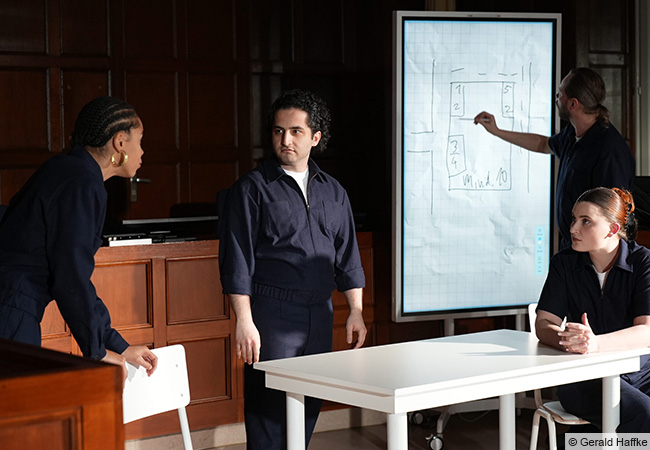Ecotoxicologist Sabrina Schiwy is a researcher, lecturer and team leader at Goethe University Frankfurt’s Institute of Ecology, Diversity and Evolution. A scholarship from Stiftung Polytechnische Gesellschaft helped her along the way.
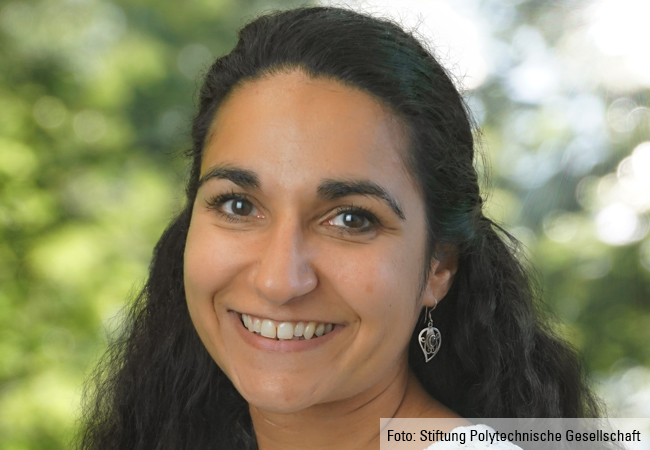
UniReport: Dr. Schiwy, you are an ecotoxicologist, deputy head of department and team leader at the Institute of Ecology, Diversity and Evolution. Please tell us about your typical working day.
Sabrina Schiwy: My wide variety of tasks and responsibilities means no two days are the same. That’s why I don’t have a typical working day. That’s also the special thing about my job: It’s never boring. I hold lectures, supervise Bachelor’s and Master’s students and am substantially involved in research. Given that research, especially, is very interdisciplinary, I have the opportunity to work with chemists, engineers and social scientists. This means that I deal with many very different people in both research and teaching, which is something I greatly value in my day-to-day work. Advancing research also always entails the constant acquisition of funding, so I often find myself involved in preparing research proposals. In addition, I work on scientific publications to make research results available to the scientific community. But my tasks also include the traditional ones of a university lecturer, such as organizing field trips and lab classes and the work associated with that, including correcting protocols and exam papers. This is just a small extract from my everyday work, and it’s precisely this variety that I appreciate.
Two of the topics you are dealing with are environmental toxins and water purification technologies. What is the situation in Germany, are our waters far cleaner today than they used to be? There were reports recently that rivers and streams are heavily polluted. Why is that? What needs to be done?
Only just under 10 percent of Germany’s rivers, lakes and coastal waters are currently in a good ecological condition. Although this is a slight improvement over 2015, Germany still faces major challenges. The pollution of our waters originates from various sources, such as roads, agriculture and the atmosphere. But wastewater treatment plants also contribute to the continuous input of various trace substances, such as painkillers, endocrine active substances, pesticides and antibiotics. One possibility for reducing the input of these substances is to add a fourth treatment stage to wastewater treatment plants. The use of activated carbon filters and ozonation have been extensively studied, and various projects were able to show that these technologies are capable of eliminating trace substances much more efficiently. As such, wastewater ozonation can eliminate up to 91 percent of diclofenac, the active ingredient in Voltaren – something wastewater treatment plants with only three treatment stages are not able to do.
You were a scholarship holder of the Main Campus Generation’s 2022-2024 educator program. How did that come about, did you apply for it yourself?
Yes, I did. A former scholarship holder of the educator program forwarded the call for applications to me and encouraged me to apply because she thought the program was suitable for me and my professional situation at the time. I applied straight away and am really pleased that the scholarship worked out.
In what areas did the scholarship particularly help and support you?
Through the scholarship and the associated program, I was able to develop substantially as a scientist and as a team leader. This is mainly thanks to the seminar program, which fitted my professional and family situation perfectly. The high-quality seminars gave me a lot of personal takeaways and enabled me to make significant progress in the areas of team leadership and project coordination, for example. Exchanging thoughts and ideas with like-minded people from a wide range of disciplines was also very valuable. The program and the various events, such as the interdisciplinary colloquium where scholarship holders have the opportunity to present their own research work, significantly foster this exchange. The variety of disciplines represented at the colloquium enabled us to look at our own research from different angles. Apart from the seminars, the financial support is, of course, also very helpful for me and my family.
What advice can you give young academics for their further training?
I heartily recommend that all young academics apply for the scholarship program. After 18 months as an educator awardee, I can see that I’ve developed in a very positive way. Especially the personal coaching sessions, the seminars in small groups and the dialog with fellow scholarship holders have made me far more self-confident in some areas of my everyday work, which is why I’m very much looking forward to the seminars still to come, such as “The Logic of Scientific Argument” or the one on how to prepare for professorial appointment procedures.
Interview: Dirk Frank
Application phase launched for 11th generation of the Main Campus Scholarship Program
Interested parties can now apply for Main-Campus-doctus and Main-Campus-educator; the application deadline is July 1, 2024. The proposal phase for Main-Campus-academicus has started and will end on June 1, 2024. The Main-Campus-Stipendiatenwerk of the Stiftung Polytechnische Gesellschaft is aimed at outstanding students, doctoral candidates and postdoctoral researchers from Frankfurt universities, offers a wide range of funding opportunities and places a special focus on interdisciplinary exchange. Interested parties can find more information on the program, application and selection process on the website www.main-campus.de.


